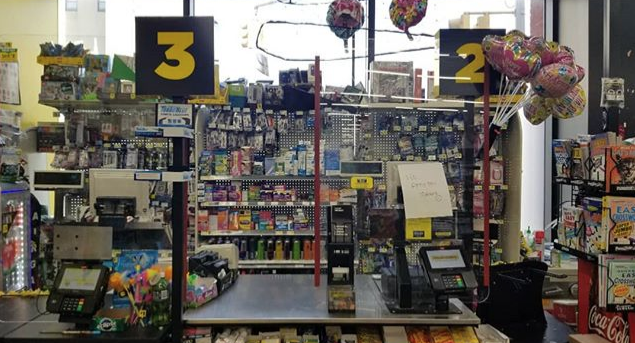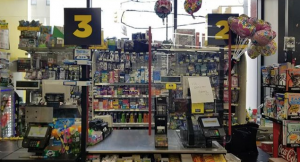

Since the passing of Governor Cuomo’s “The New York State on PAUSE” executive order, essential workers on the frontline of combating COVID-19, manufacturing face masks, providing food and services to all New Yorkers, have been running the risk of virus contraction. For many in Queens, the epicenter of New York City’s coronavirus cases, the choice to continue working comes from the pandemic’s high demands.
“Sometimes working there is like being in a nightmare,” said Mount Sinai Hospital Nurse Assistant Carmen B., who did not want to share her full name. “I feel scared to bring the virus to my family, but I like to help– to take care of the patients and assist the patients with the nurses.”
To increase social distancing by closing non-essential institutions like schools and clothing stores, Cuomo implemented “PAUSE” when only 5,707 New Yorkers had tested positive for COVID-19. According to the NYS Department of Health, there are now (as of press time) a total of 180,458 confirmed cases. Approximately 17 percent of the statewide count, or 31,291 of those known to have contracted the virus, are living in Queens.
“It’s difficult. It’s sad. You see people dying, and you can’t do anything about it sometimes. Sometimes you feel like you’re on a battlefield,” said Carmen.
In recent weeks, the Mount-Sinai hospital system has been under fire from its West Manhattan branch, where employees used Hefty trash bags as personal protective gowns. However, for Carmen and her colleagues in Astoria, they are disinfecting and reusing their protective gear, including face shields, N-95 masks, hair nets, and shoe covers.
Despite these measures, Carmen knows that virus contraction is still possible.
“I don’t really feel protected because I’m inside of the patients’ room, you never know even when washing your hands,” said Carmen. “I try to protect myself as much as I can, but you never know. The hospital is doing as much as we can.”
Before the CDC urged Americans to wear face masks while out in public, many consumers began to buy out medical necessities, including three-ply surgical masks and N-95 respirators. Golden Fleece Manufacturing Company, a Sunnyside-based factory that made men’s and boys’ sportswear before the pandemic, decided to repurpose their equipment to supply protective gear for hospitals. After momentarily closing their doors, the company gave their machine operators the option of joining the fight against COVID-19.
“With all that is in the news about NYC Hospitals having a lack of protective equipment, I decided to go back to work,” said sewing machine operator Maria A., who did not want to share her full name. “So many people are dying, and I thought I could at least help the people on the front lines with essential material.”
As of now, in New York State, 9,385 people have passed away due to coronavirus complications. In Queens, more than 1,600 residents have died. Unfortunately, for retail stores like Dollar General in Jamaica, the option of closing their doors to reduce the spread of COVID-19 is not possible.
“We do have some concerns because you never know who enters the building, they might be COVID-positive. But, all these families rely on us to put food on their tables,” said store manager Michael Gopee. “Whatever essentials they have to buy, they all depend on us. If we close there would be nothing.”
Gopee’s store is one of the handful of businesses that remain open during this pandemic, which consequently has led to more shoppers and less space for social distancing. In response, Dollar General has implemented a 50-customer limit, constant loitering announcements, plastic screens on registers that shield cashiers during checkout, and personal protective equipment for employees. Though these new protocols are intended to ensure the safety of associates and customers alike, many Dollar General workers believe they are not entirely effective.
“I do not feel safe because most people do not respect social distancing or necessary precautions,” said Assistant Manager Edith Gonzaga. “We have customers who tell others to follow the 6-feet distance rule; some of them do our job for us. Others do not care and are taking it as a joke. It is frustrating.”
In contrast to retailers, catering service CXRA in Woodside has applied distancing regulations very strictly. Prior to the pandemic, over a hundred kitchen staffers worked in close range with one another. Today, only 20 percent of the entire staff has decided to continue preparing packaged meals for large-scale corporate groups. Staff members have their temperatures checked daily, their hand washes supervised, and are asked if they exhibit common preliminary symptoms of COVID-19 like coughing or a sore throat.
“Our head chefs think of all of us with every opportunity we receive, but many of us are afraid to work,” said chef’s assistant Rosalba Gonzalez. “They gave us the option of coming into work or not, and I accepted. I’d rather work than see the news about death, suffering, and all the terrible things that are going on right now.”
Though Queens remains the epicenter of the country’s epicenter, essential workers borough-wide are devoted to not only serving their neighborhoods but all New Yorkers during this pandemic.
“In general, New York is a place where we are united, very united as people. As I walk to work each morning, I do not think to myself that Queens is the borough with the most coronavirus cases,” said Gonzalez. “No, I think the whole city, no matter where you go, the virus is there and that together we just have to think positive.”
